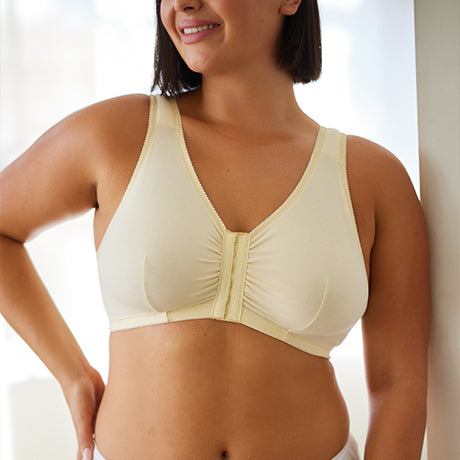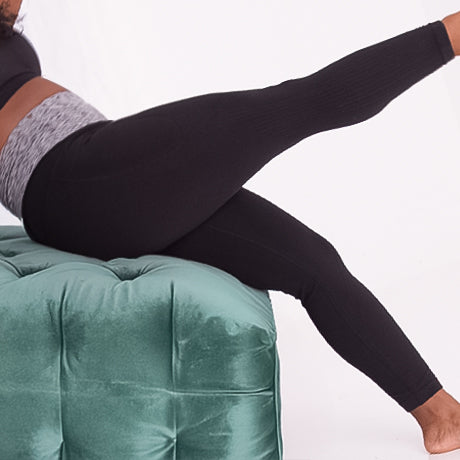Pre-Potty Training Tips
You may feel like potty training is pretty far in your future, but preparing for potty training before you are ready to do it is an important first step. Most toddlers are ready for pre-potty training by 15 months. You may not do any formal potty training for many months or even a year after that, but you will have laid a strong foundation and introduced skills and concepts that should make your potty training journey much easier.
The exact right time will be an individual decision. Start when you feel your toddler can grasp some or all of these pre potty training tips:
 Decide on Potty Words: Freely conversing about your child’s bathroom habits may be a something you never dreamed you’d be doing as a parent. But it’s actually a very important part of potty training and developing a mature child. There are many words for urine and bowel movements to choose from. You can go the technical route or pick something a little more fun for your child to say. Tee-tee, pee-pee or tinkle are common for urine; poop, poopy or poopoo are widely used for bowel movements. Select your words and stick to them for consistency.
Decide on Potty Words: Freely conversing about your child’s bathroom habits may be a something you never dreamed you’d be doing as a parent. But it’s actually a very important part of potty training and developing a mature child. There are many words for urine and bowel movements to choose from. You can go the technical route or pick something a little more fun for your child to say. Tee-tee, pee-pee or tinkle are common for urine; poop, poopy or poopoo are widely used for bowel movements. Select your words and stick to them for consistency.
Use Potty Words Often: As you change your child’s diaper, use potty words to describe what you see. “I see you’ve made a poopy.” Also use the words when you use the bathroom too. “Mommy has to go tee-tee.” This will help your child identify what’s what and eventually help her describe her bathroom urges. Never use the words as a joke or make fun of the smells associated with them. This may make your child think it is funny to have accidents or discourage her from wanting to produce a fowl smell.
Spend Time in the Bathroom: Help your child make the association between having soiled her diaper and using the toilet. When possible, change diapers as soon as you realize your child has gone in her diaper and do it in the bathroom. Dump the contents of a soiled diaper in the toilet to show your child where it is supposed to go. Let her flush it down as an exciting part of the process.
Take Your Child to the Bathroom with You: Let your child watch you, your partner and other close adults (nannies, relatives, etc…) go to the bathroom. Identify what you’ve done on the potty. Talk about how boys and girls use toilets differently and have different body parts. Show your child how you wipe, flush and wash your hands as part of your bathroom routine. Again, let your child flush if she enjoys it. Children love to model behavior and this is one area where she can benefit greatly from watching others use the toilet repeatedly.
 Read Potty Books: In addition to conversations and setting a good example, your toddler learns so much from books at this age. Read a variety of books about children learning to use the potty. You may want to select ones with favorite characters or that feature children of the same gender or race as your child. Interactive books with sound chips, lift-the-flaps or pop-ups are particularly engaging.
Read Potty Books: In addition to conversations and setting a good example, your toddler learns so much from books at this age. Read a variety of books about children learning to use the potty. You may want to select ones with favorite characters or that feature children of the same gender or race as your child. Interactive books with sound chips, lift-the-flaps or pop-ups are particularly engaging.
Sing Potty Songs: Although you should not encourage “potty talk” outside of discussing the need to use the bathroom, singing songs about going potty may be helpful. You can find several on the Internet or make one up yourself.
Sit on the Potty as a Routine: Begin urging your child to sit on the potty at strategic times when it’s natural to use the toilet such as first thing in the morning, just before bedtime, right before a bath, etc… Don’t force your child to go or reprimand her for not going, but start to create a routine that includes sitting on the toilet. If something comes out, great. Otherwise, praise your child for sitting still for a few minutes. If she wants to wipe and flush, let her do so.
Use Positive Words: Most children learn best with positive reinforcement. Praise your child often during the pre potty training stage when she can identify what she’s done in her diaper, can tell you that she’s soiled the diaper, flushes a toilet or sits for any period of time on the toilet. Making her feel proud of these accomplishments will help as you move into formal potty training.
The post Pre-Potty Training Tips appeared first on Leading Lady.




